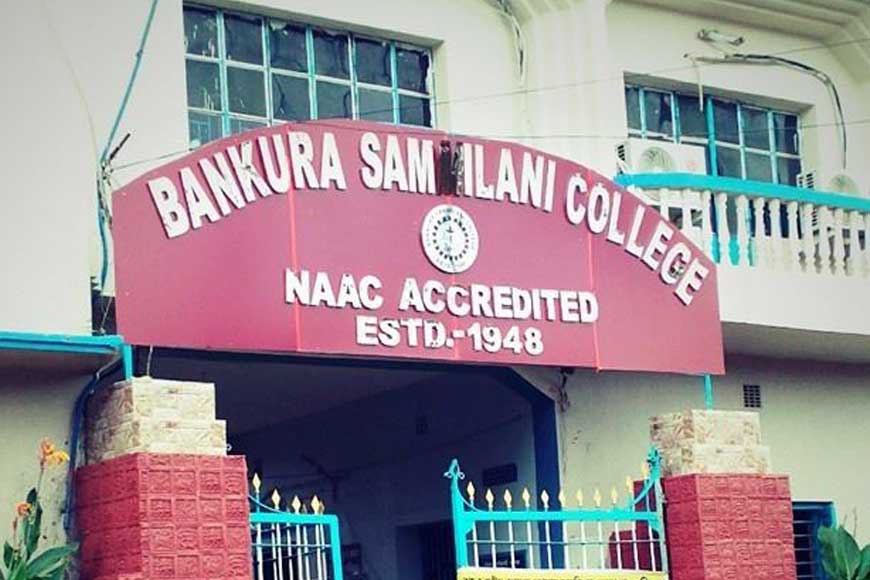Government doctors provide doorstep medical services by adopting Bankura villages – GetBengal story

The National Commission on Macroeconomics and Health reports that there is a severe scarcity of medical resources in West Bengal. Furthermore, the proportion of human resources, meaning physicians and paramedical personnel, was 1.83 per 1000 people, much less than the average of 2.25 per 1000.
The Department of Health and Family Welfare (DHFW), Government of West Bengal, has taken several steps to improve the state's health sectors in an era where most people's top priority is access to high-quality healthcare, particularly those from economically disadvantaged backgrounds and those who live in rural areas.
The Department has launched the Health Systems Development Initiative (HSDI), a five-year reform and investment program. In December 2016, the state government launched the Swasthya Sathi Scheme, providing comprehensive health insurance coverage to its citizens. The scheme ensures affordable and accessible medical services and focuses on promoting the well-being of families across the state. The program also includes upgrading block health centers to rural hospitals and providing door-to-door health services to people living in villages. It has become a lifeline for thousands, offering financial protection during times of medical emergencies.
In 2022, the National Medical Commission (NMC) mandated the Family Adoption Program (FAP) for MBBS students. Community engagement in medical education gives students an insight into the distressing living conditions of the majority of people and how these affect their health. Community medicine, sometimes referred to as public health or preventive medicine, is a branch of medicine that prioritizes population health over the health of individual patients. Preventing sickness, managing public health issues, and promoting and defending community health are their main objectives. Community medicine departments accomplish this through field practice and family health studies. All undergraduate medical students are required to participate in the Family Adoption Program, which has both opportunities and challenges of its own.
The FAP scheme assigns each student to a minimum of five families. It is required of the student to build rapport, understand their health, and contribute to bettering the family's and, consequently, the community's healthcare. With this plan, the government aims to achieve universal health coverage.
The Community Health Care Management Initiative (CHCMI), an initiative of the Panchayats and Rural Development Department, serves to implement multiple programs to raise awareness and modify behavior around public health issues in rural West Bengal. This clever intervention aims to establish and institutionalize sustainable structures and processes for community action related to health care management, as well as to bring about a convergence of services at the community level. One of the basic tenets of promoting preventive and improved health care is enabling the community to take charge of its own needs and utilize the health care services available at the government service terminals.
Recently, the Department of Community Medicine at Bankura Sammilani Medical College initiated this program, and a health camp was organized at Sanabandh Primary School in Bankura district as part of the Family Adoption Programme (FAP).
Apart from specialist doctors, 200 undergraduate and post-graduate students of Bankura Sammilani Medical College in the 2022–23 batch adopted 150 families from Sanabandh village.
Reputable medical professionals from the hospital's community medicine division periodically paid the families a visit and gathered the information they needed. Among them were Dr. Aditya Prasad Sarkar, Dr. Tridivesh Bhattacharya, Dr. Gautam Dhar, Dr. Sonali Sai, Dr. Atanu Biswas, and Dr. Sohananjan Chakraborty. Twelve specialist doctors from six other departments and MD students—Anirban Nandi, Jaya Jayanthi, Abhijit Dey, and Shahanur Mandal—also examined 200 villagers, submitting their comprehensive medical reports and histories of any prior medical conditions they may have had.
Other than health check-ups, the doctors also distributed medicines to villagers free of charge. In addition to health camps held at regular intervals, participating doctors also conduct various public service programs regularly. With the Village Health Sanitation and Nutrition Committee (VHSNC), the lowest-tier Gram Panchayats are the main agency responsible for advancing the local health agenda. The focus is on communicable illnesses, mothers' health, water and sanitation, and child health and nutrition. Primary school pupils are taught health and hygiene education, the value of planting trees, drinking clean water, washing their hands properly, and other awareness-raising topics.
The coordination of all CHCMI interventions within its geographic boundaries is the responsibility of the Shiksha-O Janaswasthya Upa Samity of Gram Panchayat.
Every Gram Panchayat (GP) periodically has a combined monthly monitoring meeting on public health, known as the "Fourth Saturday Meeting," to assess how well various agencies are performing in providing various public health-related services. Every GP is required to provide the data and information produced at the Fourth Saturday Meeting in a format called "Janaswasthya Bishayak Masik Pratibedan."
The Zilla Parishad receives a report from the State Public Health Cell that is compiled at the Panchayat Samity level.
The Fourth Saturday Meeting has to be successfully and consistently run by the Gram Panchayat in order to address matters related to public health. For improved monitoring capabilities, a web gateway has also been built.
The health camp started at Sanabandh Primary School and has immensely benefited marginalized people living in remote areas. A large part of the population in the state depends on government hospitals for treatment because they neither have the awareness nor the financial power to opt for private hospitals or go to neighboring states for ‘better’ treatment. Bankura Sammilani Medical College is a top-notch government hospital with state-of-the-art medical infrastructure. Besides, its community medicine department is among the top in the nation and offers a postgraduate, three-year M.D. program in community medicine.
In addition to existing public services and health education programs, the medical team intends to offer health treatments directly to individuals. The Community Health Care Management Initiative aims to establish and formalize sustainable processes and systems that support community involvement in health care management. The development of the Panchayat Raj Institution staff and community members' capacities can help achieve this by enabling them to plan, carry out, oversee, and manage basic health care interventions with the assistance of relevant departments, institutions, and agencies, in accordance with international, national, and state objectives.










